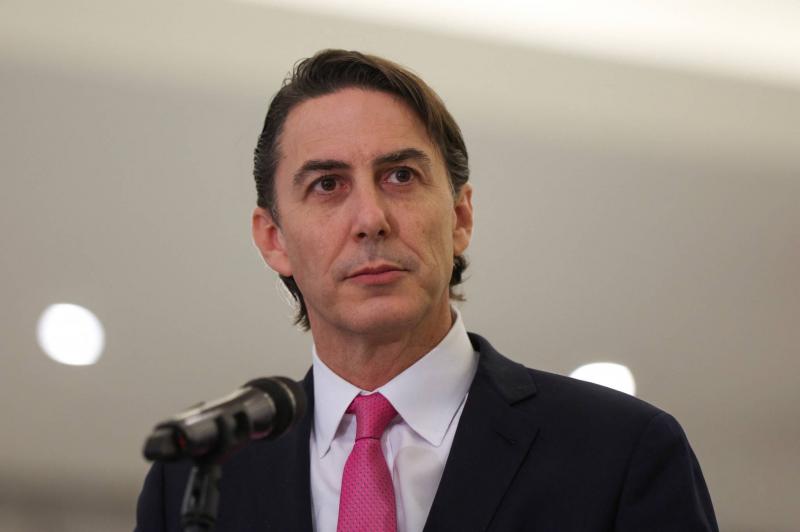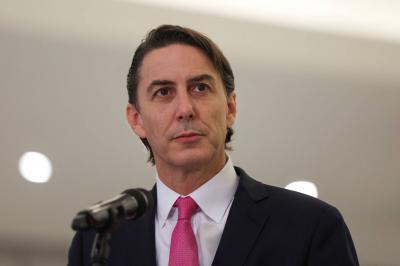Amos Hochstein, a senior advisor to the U.S. president for energy and security affairs, returned to Washington yesterday following a brief visit to Israel without stopping in Beirut as many had expected. This absence is a clear indication that a framework for de-escalating tensions on the southern front and achieving a ceasefire has not yet come to fruition. Perhaps the most troubling implication is that the American envoy failed to persuade the Israeli government with certain proposals aimed at creating a compromise that would allow Hezbollah fighters to withdraw several kilometers from the southern Lebanese border with Israel, thereby facilitating the return of displaced persons from both southern Lebanon and northern Israel. However, it was always uncertain whether Hezbollah would accept such proposals.
Thus, the "status quo" remains entrenched under the equation "Gaza precedes Lebanon," which Lebanese citizens fear means the south will continue to bleed indefinitely, with broad "war possibilities" remaining, not to mention that the country's political crises will increasingly become hostage to the explosive situation in the south.
Lebanese officials are now looking ahead, having confirmed that Hochstein would not be coming to Beirut, to what French Foreign Minister Stéphane Séjourné will convey to them today. He is expected to stress the implementation of Resolution 1701 and the prevention of the extension of the Israeli war. It is known that Séjourné is visiting Beirut for the first time as the head of French diplomacy after stops in Egypt, Jordan, Israel, and Ramallah, without ruling out that he might bring an advance warning of an Israeli operation if confrontations with Hezbollah continue. According to a correspondent from "An-Nahar" in Paris, one of the messages Séjourné carries is the need to work towards a ceasefire and avoid escalation while calling for a diplomatic solution between Lebanon and Israel.
During his visit, Séjourné will emphasize the necessity of finding a diplomatic solution between Lebanon and Israel, warning those betting on escalating tensions in the region and expressing his deep concern about the situation along the Lebanon-Israel border. He will outline the actions Paris is undertaking to prevent conditions from worsening and will call for a commitment to maintaining the security of UNIFIL forces to enable them to perform their roles fully and implement Resolution 1701 in all its provisions, which governs the demilitarization of the land borders and the cessation of hostilities.
It is expected that the French foreign minister will conclude his Beirut visit with a press conference at Rafic Hariri International Airport before departing the city. Notably, as part of the influx of envoys to Lebanon, Egyptian Foreign Minister Sameh Shoukry will visit Beirut tomorrow, where he is scheduled to meet with the Speaker of the House, the Prime Minister, and the Foreign Minister, as Egypt is one of the five countries part of the international committee concerned with the Lebanese presidential election crisis.
In this context, Lebanese Forces leader Samir Geagea responded yesterday to Speaker Nabih Berri's renewed call for dialogue, stating, "We are open to dialogue at any time, but there will be no results as long as the duo insists on Sleiman Frangieh." He added, "If the five-party committee wants Sleiman Frangieh, they can elect him," noting that "most interested countries in Lebanon prefer the army commander as president." He considered that "Speaker Berri has thwarted the ambassadors' proposal for a third presidential option and called for an election session while they are disillusioned after hearing him."
Meanwhile, a notable factor surrounding Hochstein's visit to Tel Aviv was the promotion of positive developments prior to his departure back to Washington without stopping in Beirut. Israeli broadcasting authority reported that Israeli officials indicated, "There is a genuine opportunity for efforts to end tensions with Hezbollah to succeed and that there is an American proposal involving the withdrawal of the party from the borders, in addition to the return of displaced persons along the borders." However, Israeli Foreign Minister Israel Katz reiterated Israel's classic position on Lebanon, stating, "Time is running out to find a diplomatic solution in southern Lebanon." He added, "If a political solution is not reached, there will be military action to relocate residents of Israeli towns along the Lebanese border."
Concerned political sources quickly attempted to dispel the prevailing optimism in Tel Aviv, revealing that the American mediator did not announce any intention to visit Lebanon following his discussions in Tel Aviv unless he carried a new proposal. The previous proposal he brought to Lebanese authorities during his recent visit did not receive clear responses, especially since Hezbollah rejected informing Hochstein of any answer before a ceasefire in Gaza. Despite Israeli claims about a refusal to link the southern arena with the Palestinian one, the same sources confirmed that Lebanon was officially informed that any ceasefire in Gaza would be met with a halt to operations in the south. This was also previously stated by Hezbollah in a clear statement from Deputy Secretary General Sheikh Naim Qassem just a few days ago.




